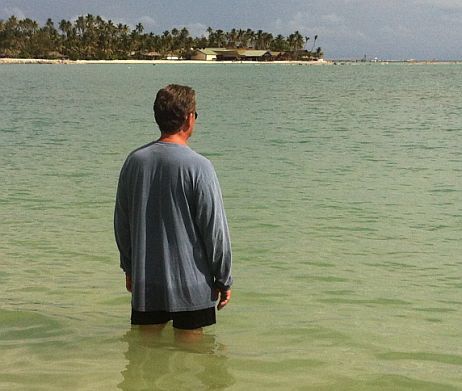|
It's a pertinent, pivotal inquiry, one which is demeaned by pursuing a mere yes / no answer to it (along with all the inevitable justifications which glom on each position, along with all the inevitable interpretations which go with either position). Rather, what this is is a scrutiny of this essential issue (which, while using Fiji as a foil, isn't limited to Fiji): Is Fiji the source of my experience of paradise? Or: Is my experience the source of "Fiji is paradise!"? Choose.
Here's my response to the question (I decline to mire it by answering it): Fiji is paradise if, when I'm here, when I'm fully present with it, I say "This is paradise!". Then it's paradise. What else is paradise? What else is paradise without us here experiencing it, saying it's paradise? Now here's the thing: if Fiji is paradise in this way, then everywhere else is also paradise in this way like a possibility. And if Fiji isn't paradise in this way, then nowhere else can be paradise either. Where I take a stand is as the context for Fiji and for everywhere else wherever I am, wherever I stand, occurring as paradise like a possibility. This is who I am.
That may be abstract. So here's its real component: carefully monitored by the Fijian government, privately owned islands can be developed. Development here doesn't mean strip malls and cookie-cutter homes. Any developer not counting on visitors wanting (no, demanding) the pristine Fijian look and feel of the islands with perhaps the additional pampering luxuries of clean sheets and towels, a warm shower and a cold beer, would only be harming their chances. Here on this immaculate island, the interior of which was once mostly a swamp, an enterprising yachtsman and his wife were among the very first to arrive. They built a few units for accommodation out of natural materials. This attracted other yachtsmen as they sailed by who dropped anchor and stayed a while, the tariffs for which allowed them to build more units and even put in a generator to power the island. True visionaries. They saw the possibilities.
